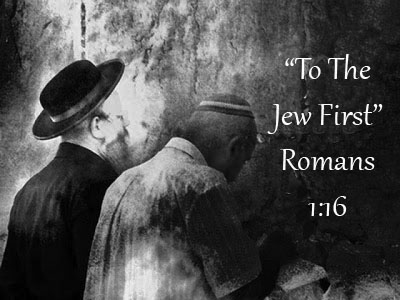Tips for Sharing your Faith

By Sam Nadler
Throughout the years, Miriam and I have been privileged to lead many Jewish individuals to faith in Messiah Yeshua. Upon asking what we do to assist these people in their spiritual search, many are surprised by how simple it is to speak of these matters. Here, I’ll share with you three diagnostic questions we use when speaking with pre-believers. These three questions can be used to equip any believer in their witness to Jewish friends, neighbors, and family members.
Q #1: If I could show you evidence that Yeshua is the Messiah, would you believe it?
This question qualifies the individuals’ sincerity and willingness to genuinely examine the biblical evidence for Yeshua to be the Messiah. It does not merely ask, “Would you like to look at the data on the subject?”, but, “Are you willing to believe based on the facts?” Often, a person’s unbelief does not stem from a lack of proof, but rather from the thought of what they might lose if they choose to believe: their relationships with family members, their standing at their workplace, etc.
One Jewish woman named *Hannah was very concerned that her new faith would break her mother’s heart and damage their relationship. With encouragement from the Scriptures, Hannah was assured that though there may be an initial reaction, in time her mother would likely see that because of Yeshua, Hannah had become the kind of forgiving, caring daughter that she had always wanted to have.
So what if the person to whom you pose this question answers that yes, they are ready to seriously consider the evidence that Yeshua is the Messiah? Once a person is truly willing to look at and believe the biblical facts about Yeshua, there are many key passages in the Hebrew Scriptures that you can share with them:
– Isaiah 59:1-2 – How our sins separate us from God
– Isaiah 53 – How Messiah would die for our sins
– Micah 5:2 – How Messiah was prophesied to be born in Bethlehem
– And many more Messianic prophesies…
Though a Jewish unbeliever may be willing to look at the facts, they often assume that there can’t possibly be any that are legitimate. For instance, the first time I was shown Isaiah 53, I assumed that “those sneaky Christians” had taken part of their New Testament and stuck it in ‘my side of the Bible.’ I didn’t think anything could be that clear! And though I wasn’t willing to give them the satisfaction of showing any interest, a spiritual seed was planted in my life that later blossomed into faith in Messiah Yeshua.
Q #2: Can you think of one thing that keeps you from coming to faith in Yeshua as Messiah?
This question addresses any unspoken issues the person may have lying below the surface. These hindrances may be intellectual (e.g. “I don’t understand the need for atonement”), but many times, they are emotional or even psychological in nature.
Many years ago, a Jewish woman named *Eileen was dying of cancer at a hospital in NYC. When I went to visit, I shared with her the facts of forgiveness in Yeshua from the Scriptures, and then asked her this question. Her answer uncovered a reservoir of hurt and bitterness. She shared with me that her Israeli husband had married her only so he could get a Green Card, and that when she was diagnosed with cancer, he left, leaving her a very ill, bitter woman. “I don’t want to forgive him!” she told me. “If I forgive him, it’s like he’s getting away with it!” From Scripture, I assured her that no one actually gets away with anything; eventually all will have to pay for their sins, for the “Judge of all the earth will do right” (Gen. 18:25). Eileen saw that she had to get past her bitterness to fully trust in Messiah.
Usually, unless there is a deep emotional hindrance that needs to be ministered to (as in Eileen’s case), intellectual arguments melt away in light of the overwhelming biblical and historical evidence that support the truth of God and the case for Yeshua as Messiah. For those who have questions to which you do not know the answer, always remember that it is ok to say, “I don’t know, but I can find out for you!” We are here to assist and encourage you as you bring the Good News to your Jewish friends and neighbors, so please, contact us!
Q #3: Would you like to trust in Yeshua right now to have forgiveness and eternal life?
If the person’s answer to this question is, “I’m not ready to trust in Yeshua,” don’t get discouraged. Just go back to the second question and explore the issues that keep the person from trusting in the love of God in Messiah Yeshua. Of course, we do not want a person to merely “pray a prayer” unless they actually believe in the One they are praying to. Prayer cannot save; Yeshua saves by one’s personal faith in Him. Many times, when I ask this question, the answer is, “Yes, I would like to very much!”
*Phil, a Jewish man to whom I was witnessing, had many questions and hesitations, but once they were addressed, he was actually thrilled to pray to trust in Yeshua. After this, he continued to meet with me one on one to learn how to grow in the Lord through discipleship.
The Time is Now
Perhaps you have yet to personally trust in Messiah. Consider these 3 questions for yourself:
– If I could show you evidence that Yeshua is the Messiah, would you believe it?
– Can you think of one thing that keeps you from coming to faith in Yeshua as Messiah?
– Would you like to trust in Yeshua right now to have forgiveness and eternal life?
If your answer to any of these questions is “Yes,” then contact us, and one of our staff will be glad to share further with you about the Good News of Messiah Yeshua. If you are already a believer in Yeshua, then acquaint yourself with these questions so that you might be a ‘ready witness’ for the Lord. God will use you as you trust Him in this area!
Our short book, Even You Can Share the Jewish Messiah! has more information on how to share Yeshua with your Jewish (and non-Jewish) friends, as well as a list of Messianic prophecies to reference when sharing. We pray that this will be a valuable tool to assist you in communicating the Good News even more effectively!
*Names changed to protect the identity of the individuals




Add Comment